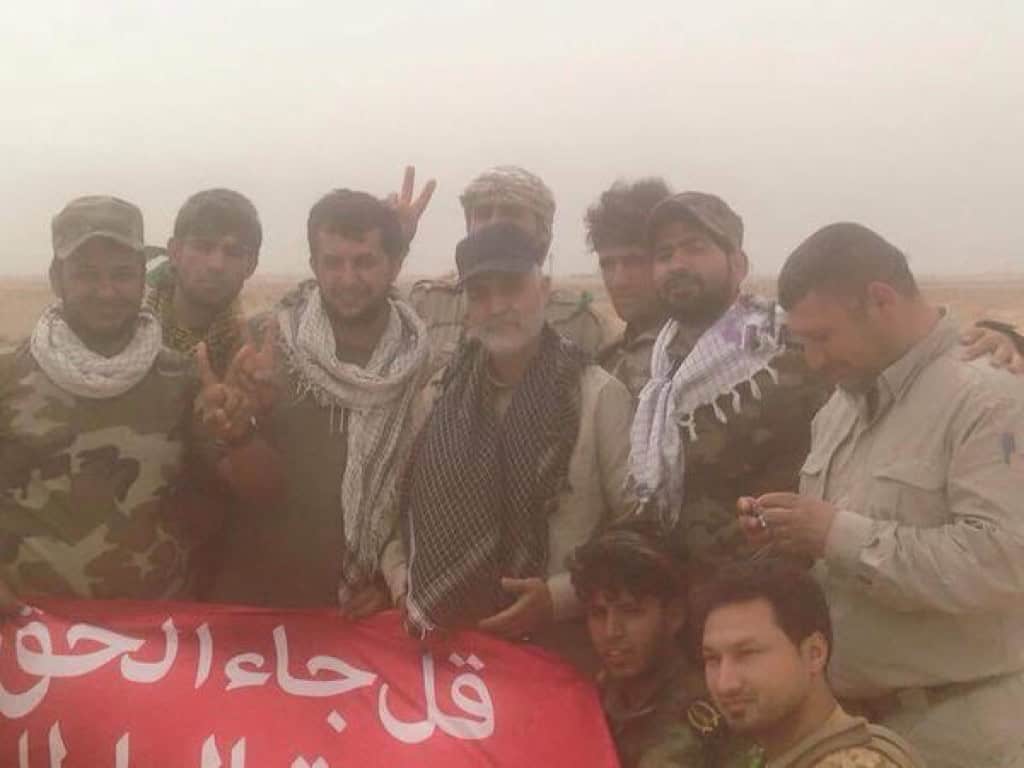
Qassem Soleimani, the commander of Iran’s Qods Force, serves as an official advisor to the Iraqi government, the foreign minister confirmed yesterday. Soleimani and Qods Force have provided advice and support for the Popular Mobilization Forces and its component militias.
While hosting reporters in the Iraqi Embassy in Amman, Foreign Minister Ibrahim Jafari defended Soleimani’s role in bolstering sectarian militias that have often acted outside of the law in Iraq as they battle the Islamic State.
“Qassem Soleimani provides military advice on Iraqi soil, and this is with the complete awareness of our government.” Jafari said. He also noted that “terrorists from 100 countries are in the ranks of DAISH,” the pejorative term for the Islamic State.
“Baghdad is fighting DAISH on behalf of all the countries in the world,” Jafari continued, implying that Soleimani’s role in Iraq should be welcomed by all.
The Iraqi foreign minister had also defended Soleimani and Iran’s role in Iraq earlier in an interview with Egyptian newspaper Al Ahram on June 6. But he insisted that Iran’s role in Iraq was merely advisory and that no Iranian troops were on the ground.
“Iran’s role is advisory and at the level of individuals,” Jafari insisted. “Only Iraqi forces are in the field of combat. Anyone that says anything otherwise is a complete lie.”
“We have nothing to hide and are not ashamed of anything,” he continued. “We declared from the beginning of the coalition that ground operations would be undertaken by Iraqis, and we would not permit the presence of any armies or groups from abroad be they neighboring countries or others. Advisors are present only in some areas. There are advisors from Europe, America and other countries as well and oversee the progress of the courageous Iraqi soldiers. But the presence of these military advisors do not affect the will of Iraqis. It is Iraqi soldiers who have taken arms, fight and are killed.”
The Iraqi Foreign Minister’s statements follow criticisms of Iran’s military role in Iraq, particularly by senior Saudi officials.
Despite protests by Jafari, Soleimani and Qods Force, which serves as the external operations branch of Iran’s Islamic Revolutionary Guards Corps, have done more than just advise Iraqi ground forces in their fight against the Islamic State. Soleimani and his deputies have helped create, organize, fund, arm, and deploy the dangerous Shia militias that dominate the Popular Mobilization Forces, which was created in June 2014 after the Islamic State overran large areas of Iraq. And Soleimani, Qods Force and IRGC officers have been providing more than just advice to the Shia militias.
Some of these militias, such as the Badr Brigade, Hezbollah Brigades and Asaib al Haq, were created during the US occupation of Iraq, and are responsible for killing hundreds of US troops. Others, like Harakat al Nujaba and Shahid al Shuhada, were created after the Syrian civil war escalated. Other militias, such as the Imam Ali Brigade and Saraya al Khorasani were created after the Islamic State ran roughshod over northern, central, and western Iraq. Each of these militias were modeled after Hezbollah, the Iranian-backed militia and organization that dominates inside Lebanon.
The Popular Mobilization Forces (PMF) is led by several agents of Iran. Abu Mahdi al Muhandis, a former commander in the Badr Organization who was listed by the US government as a Specially Designated Global Terrorist in July 2009, directs the PMF’s military operations. The US government described Muhandis, whose real name is Jamal Jaafar Mohammed, as “an advisor to Qassem Soleimani,” the commander of the Qods Force, the external operations wing of the Iranian Revolutionary Guards Corps (IRGC). In addition to directing the PMF, Muhandis is also said to direct the operations of the Imam Ali Brigade as well as command Hezbollah Brigades.
Hadi al Ameri, the head of the Badr Brigade and Iraq’s former minister of transportation, also plays a prominent role in the PMF. Ameri is a close confidant of Soleimani and his Badr Brigade fought alongside Iran in the Iran-Iraq war from 1980-88.








1 Comment
Any chance an ISIS artillery round will nail him?